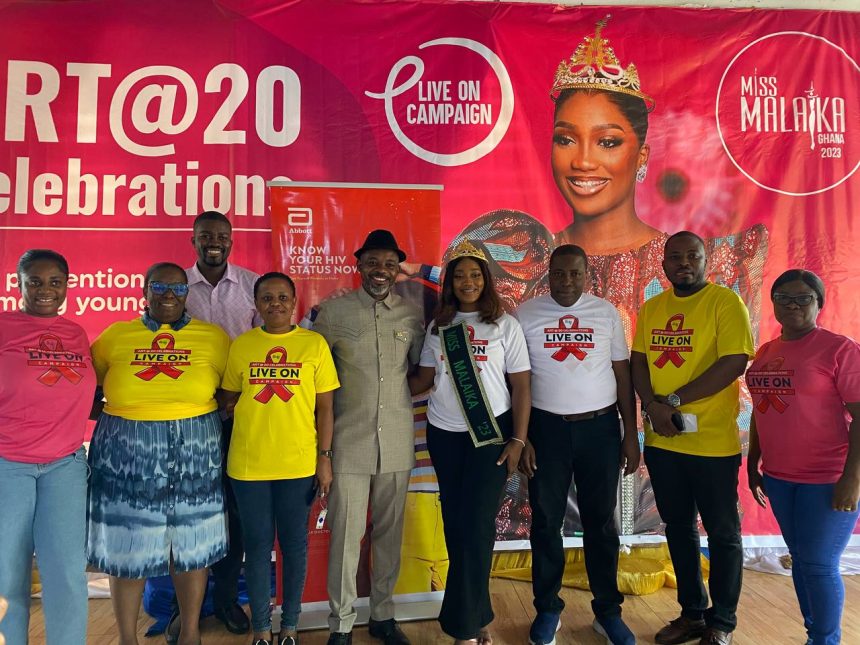In a bold move to combat HIV and promote sexual reproductive health among young people, the United Nations Population Fund (UNFPA) Ghana has partnered with the winner of Miss Malaika Ghana 2023, Lady Nana Yaa Nsarko, National AIDS Control Programme (NACP) and other stakeholders to launch an HIV/AIDS prevention campaign to empower young people.
The campaign, themed “HIV Prevention for Young People with Miss Malaika’s Live On Campaign” is part of the Antiretroviral Therapy (ART) @20 celebrations and aims to educate and empower young adolescents, including teenage mothers, in four regions of Ghana.
The campaign, launched at the Wesley Grammar Senior High School on Wednesday, July 31, 2024, targeted both in-school and out-of-school youth, ensuring no one is left behind.
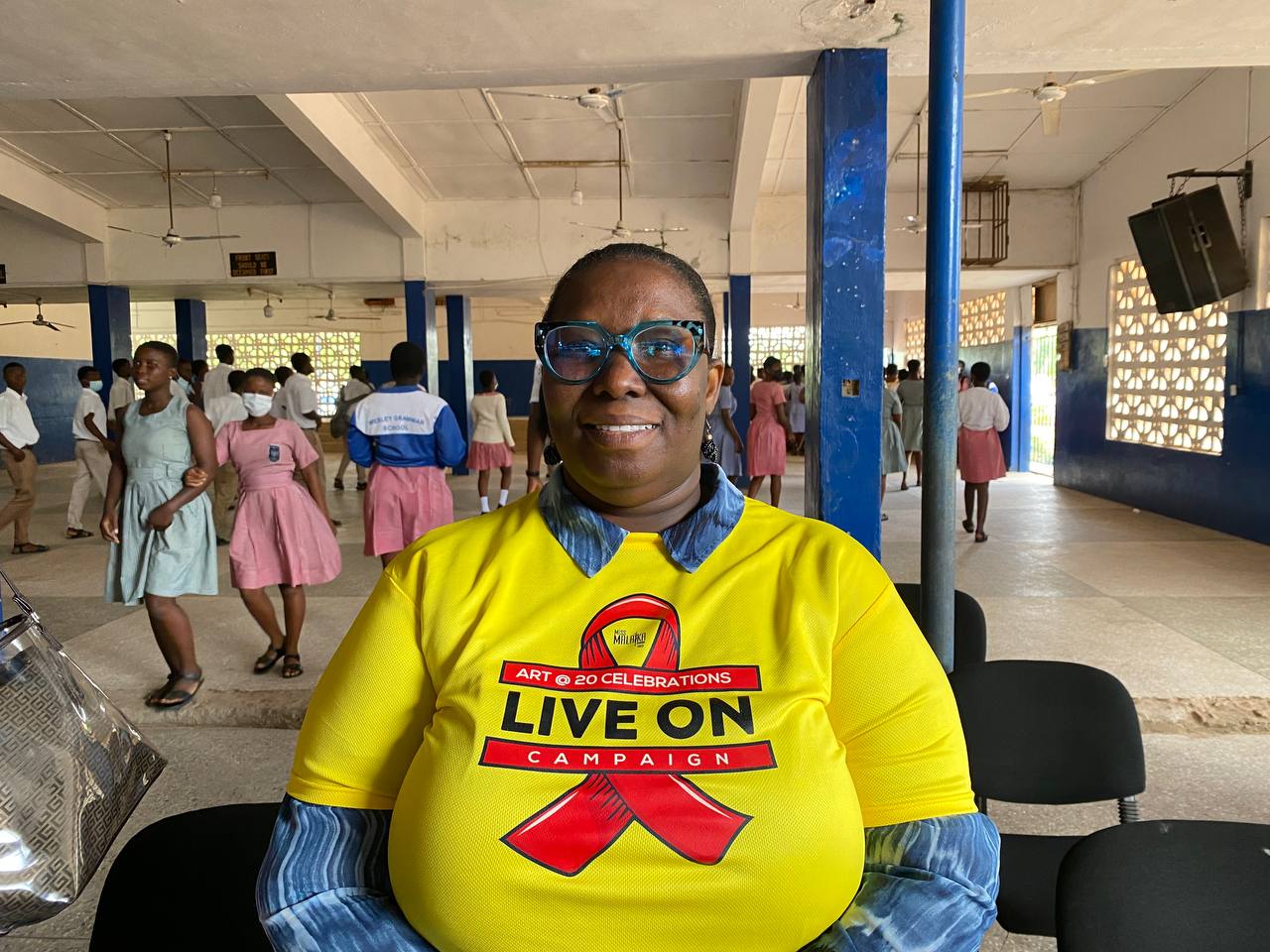
Speaking to UniversNews, the Executive Director of the Purim African Youth Development Platform (PAYDP), Rev. Aku Xornam Kevi, highlighted UNFPA Ghana’s keen interest in improving the lives of young people in the country.
She added that UNFPA has joined forces with various partners to achieve this goal, including the Ghana Health Service, Ghana Education Service, and the Ministry of Gender, Children, and Social Protection.
“UNFPA is interested in the transition of young people into adulthood. UNFPA is interested in building the capacity of young people and ensuring that young people are protected from HIV, STIs, teenage pregnancy, and all these things. UNFPA works with various partners, PAYDP, Ghana Health Service, Ghana Education Service, Ministry of Gender, Children and Social Protection, etc. to ensure that young people all over get access to contraceptives,” she said.
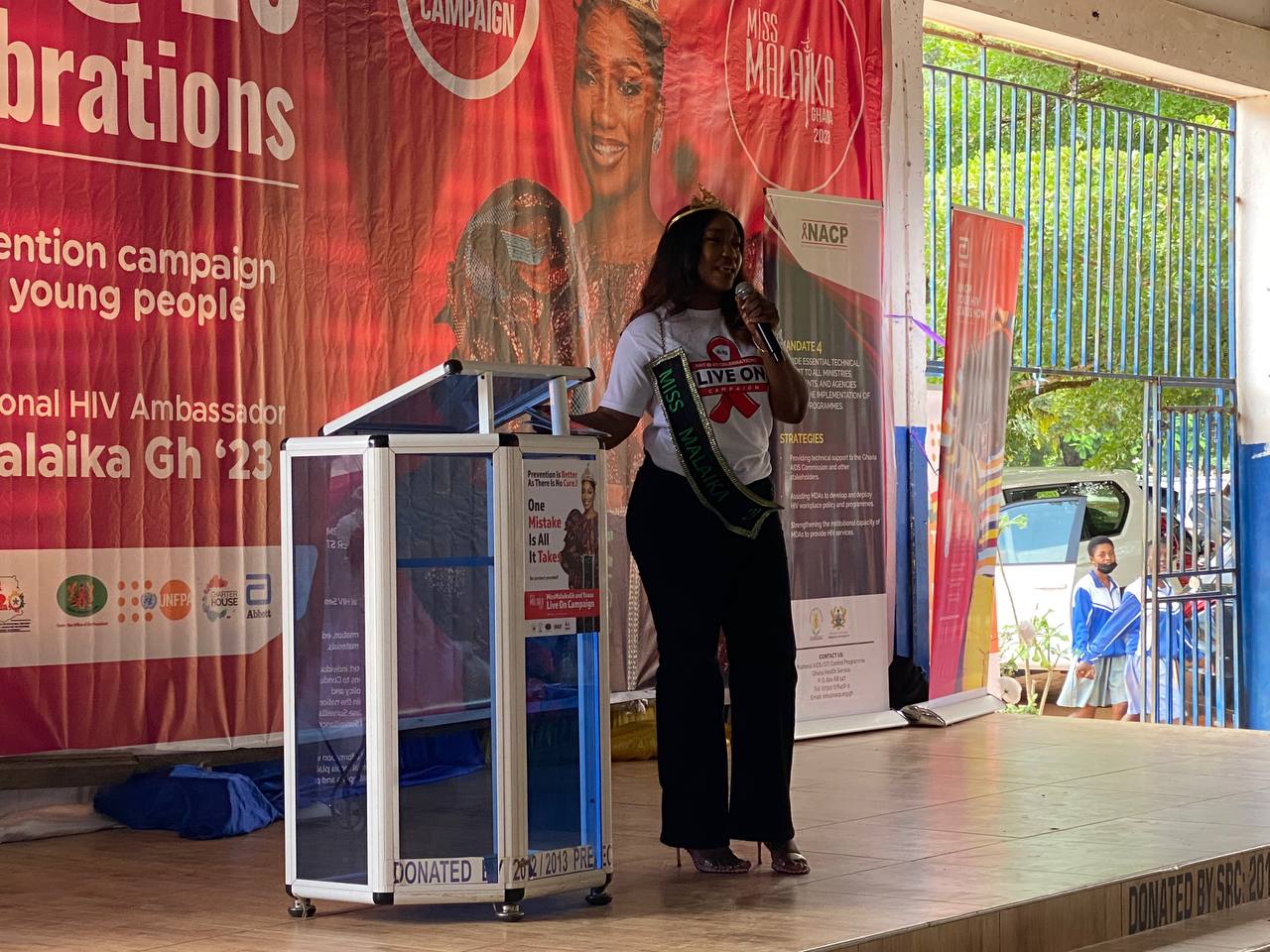
Winner of Miss Malaika Ghana 2023, Lady Nana Yaa Nsarko, who also spoke to UniversNews, highlighted the importance of this campaign in educating and empowering young people about HIV prevention and treatment.
Defying the notion that HIV is “no longer in the system,” Lady Nsarko emphasized, “HIV is not over, it’s still in the system, and every day people get infected.”
Her project aims to educate and empower young people about HIV prevention and treatment, targeting young people, as well as teenage mothers.
She stressed the importance of abstinence and safe practices, warning that “HIV is not written on anyone’s forehead, and anyone can be infected with the virus, no matter their origin, age, or personality.”
We are talking about HIV prevention so the key is to abstain. If you abstain, you are not going to be infected. However, you can get infected with the virus through several means which I explained to them can be through the sharing of sharp objects. Most people find it normal. They take someone’s razor blade and use it because according to them, when they look at their faces, it doesn’t look like they have the virus. So, I was talking to them about the fact that HIV is not written on anyone’s forehead and anyone can be infected with a virus no matter their origin, no matter how they look, no matter their age, no matter their personality,” Lady said.
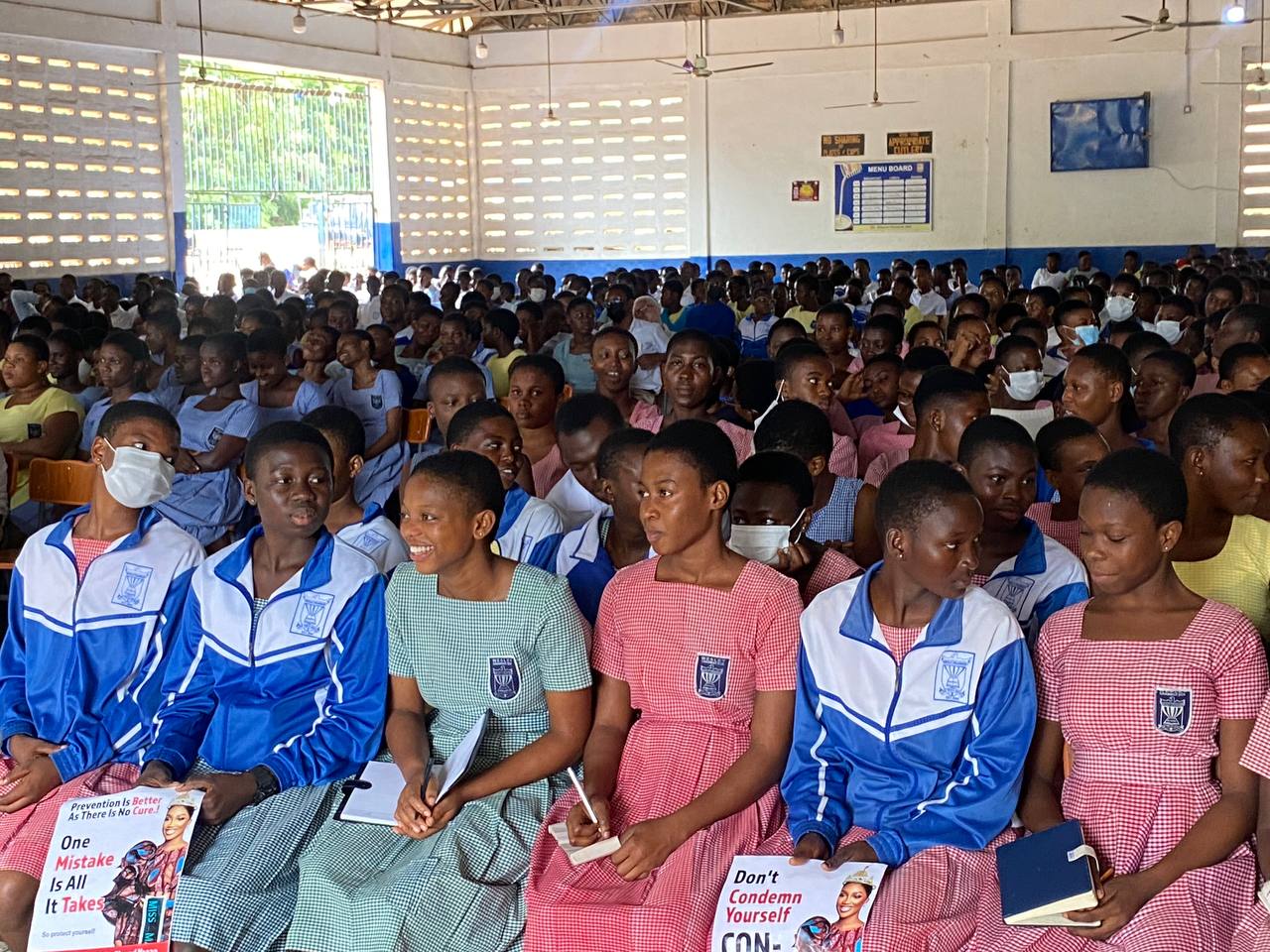
She also highlighted the need to reach out to vulnerable groups, such as those in market communities, who often face challenges like homelessness and exploitation.
“So, for the educational institutions, our target is SHS schools and then universities and then for out-of-school, we are looking at teenage mothers and the people in the markets specifically, kayayei, because most of the time, people reach out to the ones in school ignoring those outside but we forget that these people face a lot of challenges such as homelessness. When it rains, they don’t have anywhere to sleep so they end up engaging in a lot of activities, and before you realize they’re infected with the virus,” Lady added.
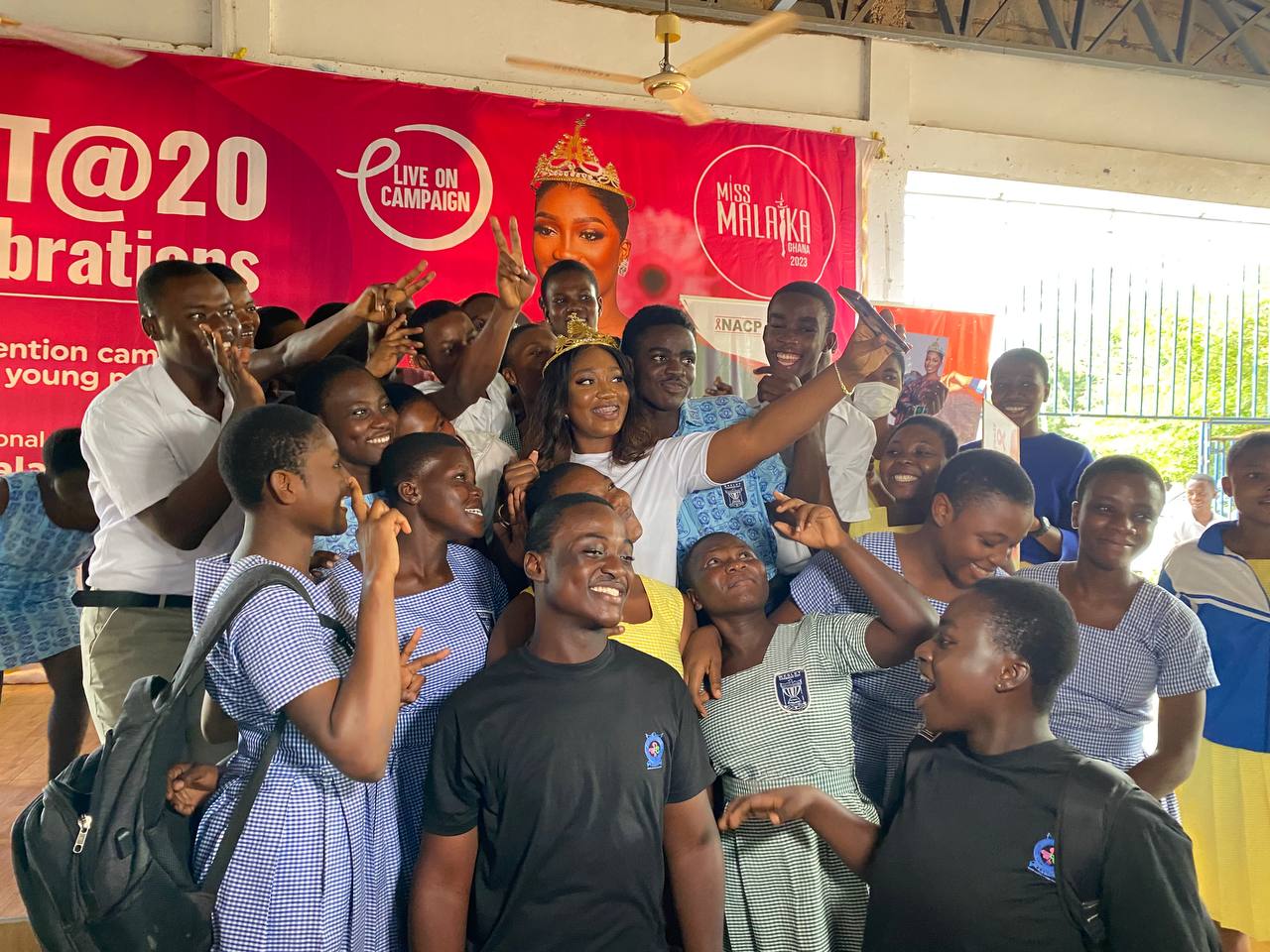
With her ultimate goal to contribute to ending HIV by 2030, Lady Nsarko urged the government to improve sensitization when it comes to the talk on HIV and work hand-in-hand to combat the rising numbers of HIV infections.
Her campaign has already begun to resonate with students at Pentecost University, the University of Ghana, and her first SHS school, Wesley Grammar Senior High School. She intends to visit the Kwame Nkrumah University of Science and Technology (KNUST) and other institutions in the coming weeks.
Dr. Stephen Eyisi Addo, Manager of the National AIDS and STI Control Program, Ghana Health Service, Ministry of Health, also emphasized the need for HIV prevention and education among young people.
The stark reality of the seriousness of HIV/AIDS, he said, underscores the need for prevention and education among the youth.
“So as it is with the principle of everything, without knowledge, my people perish. It is through capacity building and empowerment through knowledge that people can acquire skills to be able to effectively live. Part of living is trying to stay clear from risk, all kinds of risk. We’re talking about HIV here because, as a country, there are an estimated 330,000, approximately, people living with HIV in Ghana. Which means that since we found the first case of HIV in 1986, we’ve continued to increase the numbers”, he spoke to UniversNews.
Dr. Addo stressed that HIV is still a significant threat, despite progress in treatment, and that prevention is crucial to achieving epidemic control.
“We cannot treat ourselves out of the epidemic. We’ve put almost up to 300,000 people on treatment. As we speak now, there are about 154,000 people, which means that we’ve lost a lot of them to death. People are tired of taking their medications, and they come back later dead and all that. So taking medication is not easy. It’s not like Malaria, where there’s a definite end date. There is no cure yet and so people get tired over time. So if you are taking it today, and tomorrow you get tired, you are only postponing your death. So we are working hard to get a final cure, or even a vaccine,” he emphasized
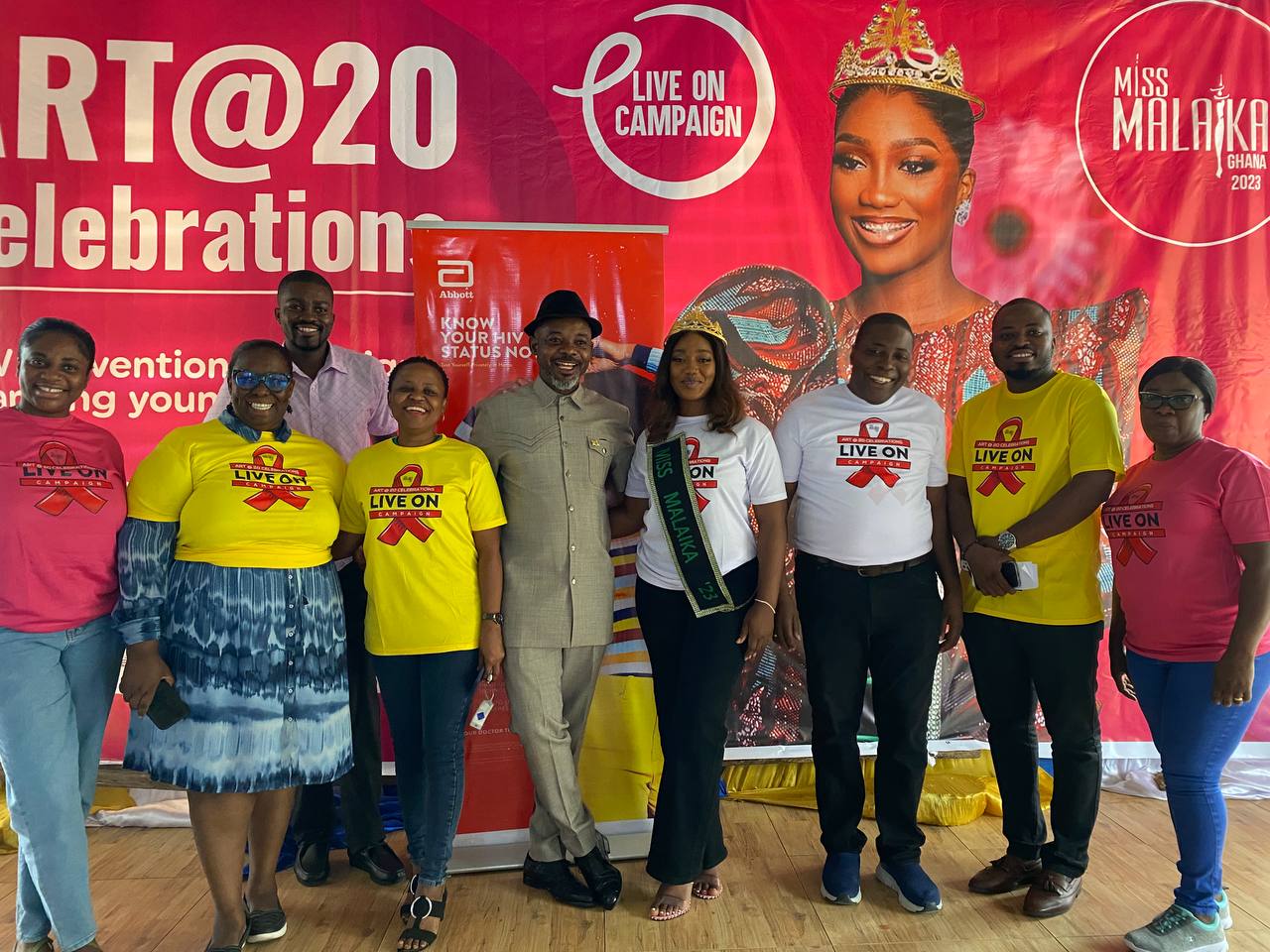
Dr. Addo further touched on some innovative means that the NACP is using, including the ‘Touching Base With Miss Malaika’ campaign to reach out to young people on HIV prevention.
“We have to use creative means, very innovative means. And that is why we’ve rallied around Miss Malaika 2023, who is a young person, has peers, is a model to them, and is likely to influence them. She is a channel of communication of HIV prevention to her peers and that is the reason why we’ve launched this caravan, which is the ‘Touching Base With Miss Malaika’. It’s an HIV prevention campaign among the youth.
It’s in line with our celebration at 20, affirming that HIV is still real. We need to prevent infections. Even though people are on treatment, we need to ensure that the virus is suppressed. We need to ensure that there is epidemic control. We need to keep the country free of HIV so that people will continue to contribute to the development of our country, “he added.
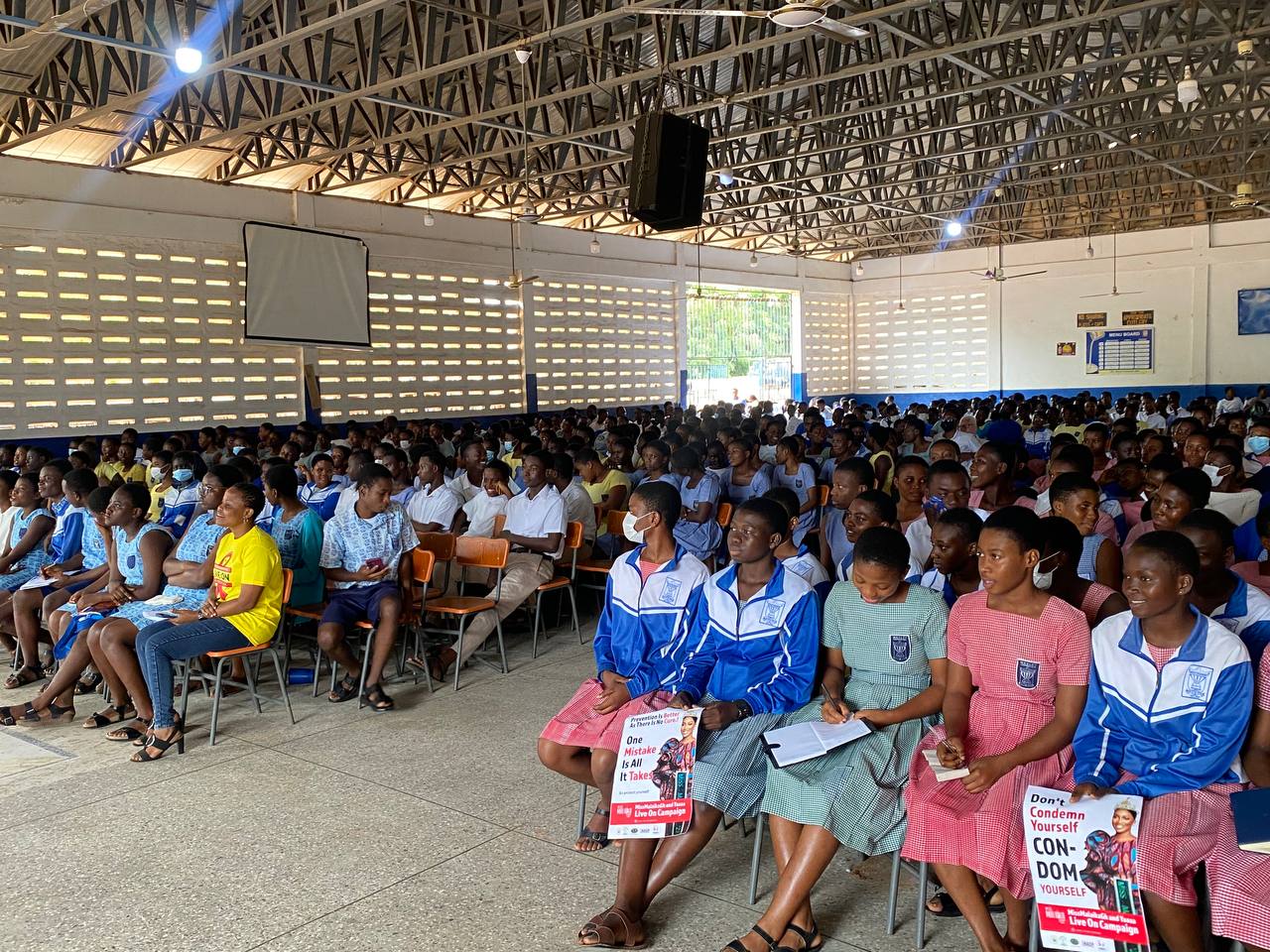
Margaret Pinto, the Wesley Grammar SHS Students Representative Council (SRC) Main Secretary also admonished young people to abstain from sexual activities to prevent them from contracting the virus.
“For us students, abstinence is very key when it comes to HIV prevention. We have to abstain from sexual activities. We want these engagements to be happening all the time and it shouldn’t be focused on women and girls okay but it should be for everyone. For others out there, HIV is real and it has no cure so everyone should abstain,” she told UniversNews.
Finally, Miss Malaika Ghana 2023 winner, Lady Nana Yaa Nsarko thanked UNFPA Ghana and the other stakeholders for their continued support in making the campaign against HIV/AIDS a success.
“My biggest appreciation goes to UNFPA Ghana. They did an amazing job in providing us with some of the essential items we needed for this campaign. I thank them so much for their continued dedication to creating a world that is free from HIV/AIDS. I thank the other stakeholders as well. My gratitude goes to all of them,” Lady said.
–
Story by: Kelly Adjetey Boye | univers.ug.edu.gh

